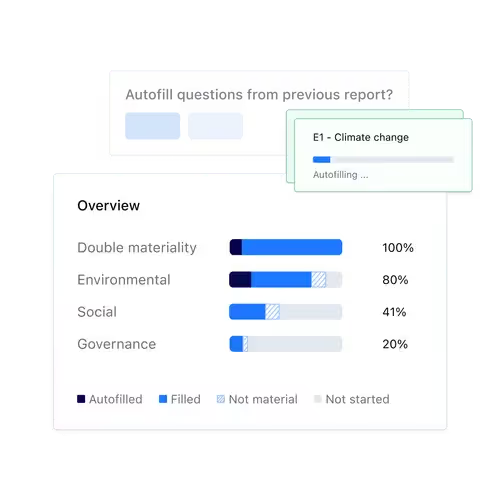Disclaimer: New EUDR developments - December 2025
In November 2025, the European Parliament and Council backed key changes to the EU Deforestation Regulation (EUDR), including a 12‑month enforcement delay and simplified obligations based on company size and supply chain role.
Key changes proposed:
These updates are not yet legally binding. A final text will be confirmed through trilogue negotiations and formal publication in the EU’s Official Journal. Until then, the current EUDR regulation and deadlines remain in force.
We continue to monitor developments and will update all guidance as the final law is adopted.
The Corporate Sustainability Reporting Directive (CSRD) aims to improve the quality and consistency of sustainability reporting across Europe, helping businesses build stakeholder trust and create lasting value.
Speak to one of our experts today.

This free compliance checker scans your packaging documentation and maps it against mandatory PPWR data requirements, giving you a clear view of your compliance status. Get actionable insights on documentation gaps before they become compliance issues.
Speak to one of our experts today.

Based on customer case studies our team has developed a realistic timeline and planning for EUDR compliance. Access it here.